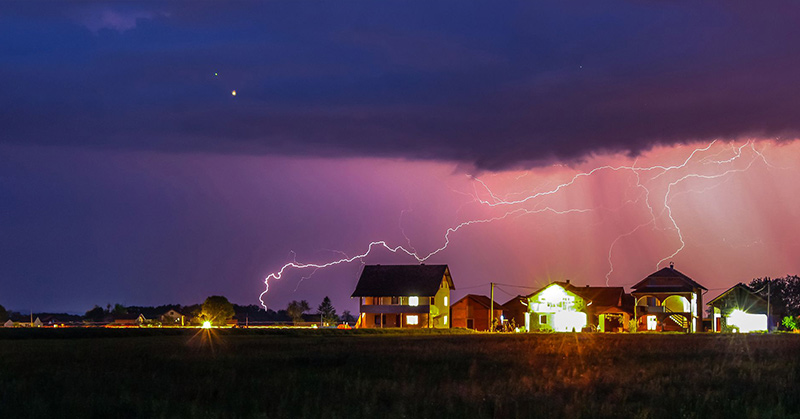If your grandmother ever told you to stay away from the sink or tub during a thunderstorm, she knew what she was talking about. Metallic pipes, tubs, and other conductive surfaces can pose a serious risk during a storm. While plastic pipes offer a small measure of protection, the presence of impurities in tap water increases its conductivity, making bathing or washing dishes during a thunderstorm extremely risky.
Lightning is selective of where it strikes, not who
Lightning is not selective of who it strikes, but it can choose where to strike. If you’re in close proximity to metallic surfaces and running water during a storm, whether indoors or outdoors, you put yourself at great risk. Water pipes and electric conduits are grounded into the house, and lightning can strike the ground and hit these directly, posing a danger to anyone connected to them.
Tap Water Worsens The Situation
Tap water naturally contains various ions that increase its electrical conductivity. Thus, using tap water to bathe during a thunderstorm is not recommended due to the increased risk of harm from lightning strikes.
What happens when a person is struck by lightning?
Being struck by lightning, while rare, can be deadly and cause major electrical burns and scarring. Survivors may face various medical complications, including cardiac arrest, severe brain damage, coma, paralysis, and more.
What to do when a person is struck by lightning [9]
Every second counts when someone is struck by lightning. This section advises on what to do if you or someone else has been struck and emphasizes the importance of seeking immediate medical help.
It’s vital to create awareness of the dangers of lightning strikes, especially to children in the home. Teaching them to stay away from faucets and running water during storms is crucial for their safety.






